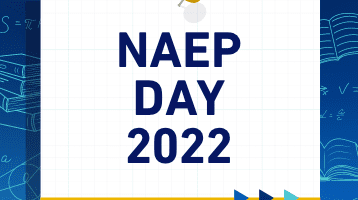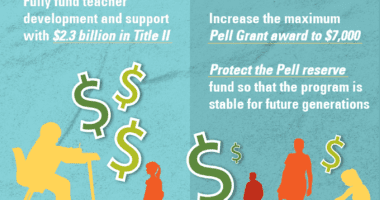Look Beyond the Politics of the Common Core
Recent polling on Common Core highlights the growing politicization of the standards and how their portrayal in the media has damaged and undercut sectors of public support.
But let’s be careful not to confuse a brand issue with a substance concern. When you remove the politicization around the Common Core and talk of the basic need and desire for high academic standards, much of the public remains committed to that goal. (Education Next reports 68 percent support for high, consistent standards when the name “Common Core” is dropped from the descriptor.) Despite what last month’s PDK/Gallup polling might have you believe, the majority of U.S. citizens are not shying away from the obvious need to raise standards of achievement; instead, they are acknowledging that wide variations in academic rigor across communities and states undermines our nation’s long-term strength and prosperity.
The best way to build on this widespread agreement and turn back the down-trending implied within those polling results is to re-double our efforts by supporting quality implementation of the standards. Much of the steep decline in teacher support for the Common Core is connected to a lack of quality support, as well as premature connections between student assessment results and teacher evaluation. Some states, and most recently the U.S. Department of Education, have adjusted their implementation timelines, giving educators more time to transition to the higher standards before being judged on them.
Like most other professionals, teachers want to be held accountable for outcomes and skills that they have received reasonable time to master. (Sixty-two percent of educators in a recent ASCD SmartBrief poll said the use of Common Core-aligned assessment results for accountability purposes should be delayed two years or fewer; 74 percent said three years or fewer.) In high-poverty and inner-city schools, teachers and leaders are also embracing the Common Core as just the leverage point they need to increase learning and opportunity for some of our most vulnerable young people.
Similarly, when families have the opportunity to see how the standards connect to their child’s learning, there is far more openness to the potential the standards represent. At an Open School night last spring, the parents around me were uneasy about the demands of the Common Core. One veteran third-grade teacher spoke about the differences in the depth of student understanding under the new standards and how they would have helped her own children’s struggle with calculus in high school. Another teacher explained that teaching more non-fiction would not mean jettisoning beloved childhood literature like Charlotte’s Web and James and the Giant Peach, but giving children time to read about topics in science that held their interest. Almost instantly, the anxiety in the room evaporated. Parents from all economic levels were encouraged by the fact that their children were being prepared to meet a higher level of expectation from teachers — who were also committed to keep learning creative and active for their students.
These are the kinds of conversations that are happening at the local level, but of which we never hear of in the polls. They are also the kinds of conversations that spread awareness, rather than incite fear. And these will help create the conditions for success that gives educators, parents, and students the confidence that — despite the nay-sayers — higher academic standards are, in fact, worth our efforts.













